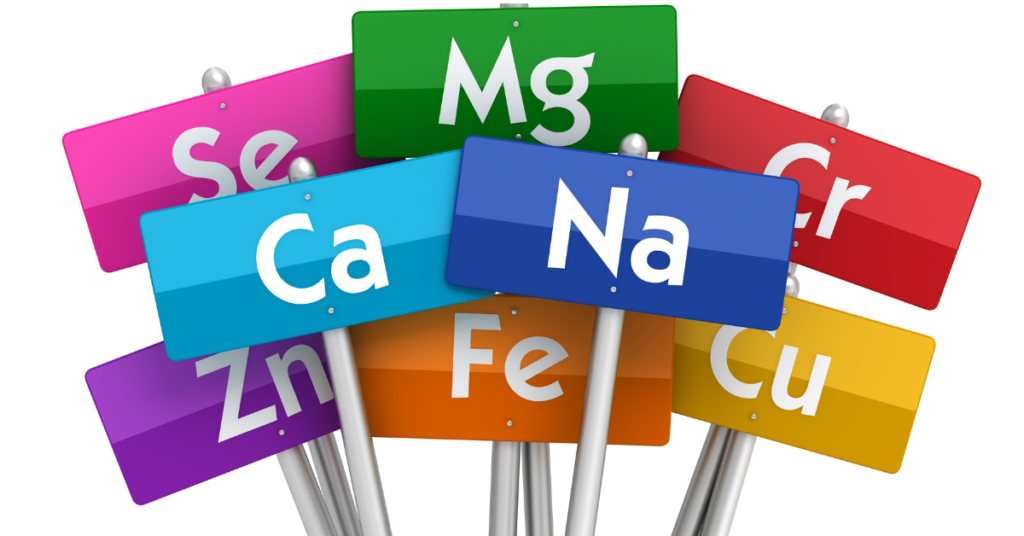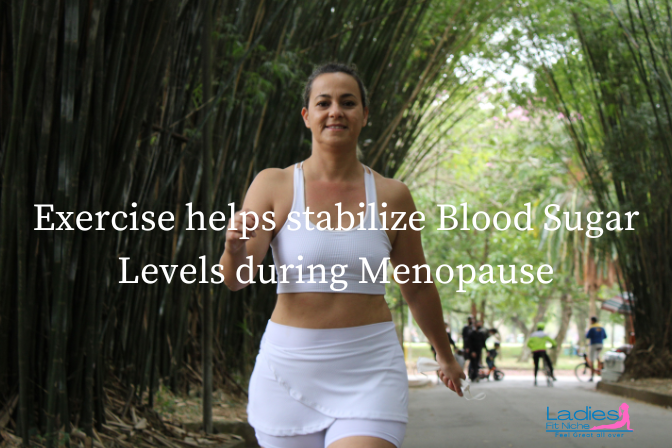Age Gracefully: The Power of Vitamins and Minerals in Alleviating Menopause Symptoms
The Essential Role of Vitamins and Minerals for Managing Menopause Symptoms
Menopause is a natural process that every woman goes through as she ages. This transitional period marks the end of a woman’s reproductive years and comes with its own set of challenges, including hot flashes, night sweats, mood swings, insomnia, and decreased energy levels.
Hormone fluctuations are the main cause of these symptoms; however, research has shown that proper nutrient intake can help alleviate some of these symptoms. Vitamins and minerals play an essential role in managing menopause symptoms.
Here are some Vitamins and Minerals that are best for Menopause Symptoms relief
Vitamin A:
- Bone Health: Menopausal women are at an increased risk of developing osteoporosis. Vitamin A plays a vital role in maintaining healthy bones and preventing bone loss. It helps in the production and regulation of osteoblasts, which are responsible for bone formation.
- Vision Support: Vitamin A is essential for maintaining good eyesight. It helps prevent age-related macular degeneration (AMD) and cataracts, both of which become more common during and after menopause.
- Skin Health: Menopause often leads to changes in the skin, including dryness, thinning, and reduced elasticity. Vitamin A promotes the production of collagen, a protein that supports skin structure and reduces the appearance of wrinkles. It also helps to maintain the integrity of the skin barrier, keeping it moisturized and healthy.
- Immune System Support: The immune system can weaken during menopause, making women more susceptible to infections and illnesses. Vitamin A strengthens the immune system, aiding in the production and function of white blood cells that fight off pathogens and protect against diseases.
- Hormonal Balance: Vitamin A plays a crucial role in maintaining hormonal balance. It supports the production of hormones like estrogen and progesterone, which decline during menopause. Adequate levels of vitamin A can help alleviate some of the symptoms associated with hormonal imbalances, such as hot flashes and mood swings.
- Heart Health: Menopause is associated with an increased risk of cardiovascular diseases. Vitamin A has antioxidant properties that help reduce oxidative stress and inflammation in the cardiovascular system, promoting heart health and reducing the risk of heart-related issues.
Food Sources rich in Vitamin A (beta-carotene):
- Carrots
- Sweet Potatoes
- Spinach
- Kale
- Apricots
- Mangoes
- Red Bell Peppers
- Papaya
- Cantaloupe
- Cod Liver Oil
If you are considering taking vitamin A supplements, it’s best to consult with a healthcare professional to determine the appropriate dosage for your specific needs.
VitaminB-12
Vitamin B-12 offers several benefits to menopausal women. Here are some of them:
Energy Boost:
Menopause can bring about fatigue and decreased energy levels. Vitamin B-12 is essential for the production of red blood cells, which carry oxygen throughout the body. Adequate levels of B-12 can help combat fatigue and promote overall energy levels.
Mood Regulation:
Hormonal changes during menopause can contribute to mood swings and increased risk of depression. Vitamin B-12 plays a crucial role in the synthesis of neurotransmitters such as serotonin and dopamine, which are involved in mood regulation. Sufficient levels of B-12 can help support emotional well-being and reduce the risk of mood disorders.
Cognitive Function:
Menopausal women may experience cognitive changes, including memory decline and difficulty concentrating. Vitamin B-12 is vital for brain health and supports cognitive function. It helps in the production of myelin, a protective covering of nerve cells, and assists in neurotransmitter signaling, which is essential for optimal brain performance.
Heart Health:
women experiencing menopause are at an increased risk of cardiovascular diseases. Vitamin B-12, along with other B vitamins, helps lower levels of homocysteine, an amino acid linked to an increased risk of heart disease. Adequate B-12 intake can support heart health and reduce the risk of heart-related complications.
Bone Health:
Estrogen decline during menopause can lead to bone loss and an increased risk of osteoporosis. Vitamin B-12 works in conjunction with other B vitamins, such as vitamin B-6 and folate, to regulate homocysteine levels. Elevated homocysteine levels have been associated with an increased risk of bone fractures. By maintaining healthy homocysteine levels, B-12 contributes to better bone health.
Nerve Function:
Vitamin B-12 is crucial for maintaining a healthy nervous system. It plays a role in the production of myelin, a protective coating around nerves that facilitates efficient nerve signal transmission. Adequate B-12 levels help support proper nerve function and can reduce the risk of peripheral neuropathy, a condition characterized by numbness, tingling, and pain in the hands and feet.
It’s important to note that vitamin B-12 is primarily found in animal-based foods, so menopausal women who follow a vegetarian or vegan diet may be at a higher risk of B-12 deficiency. In such cases, B-12 supplementation or consuming fortified foods can be beneficial. As always, it’s recommended to consult with a healthcare professional for personalized advice regarding vitamin B-12 supplementation.
Food Sources Rich in Vitamin B-12:
- Clams
- Beef Liver
- Fish (such as salmon, trout, and tuna)
- Shellfish (such as oysters and mussels)
- Crab
- Fortified Breakfast Cereals
- Fortified Plant-Based Milk (such as soy milk and almond milk)
- Fortified Nutritional Yeast
- Eggs
- Cheese
Vitamin B-6
Vitamin B-6 offers several benefits to women during menopause. Here are some of them:
Hormonal Balance:
Vitamin B-6 plays a crucial role in hormone regulation. It aids in the production and metabolism of hormones such as estrogen and progesterone, which decline during menopause. Adequate levels of B-6 can help alleviate some symptoms associated with hormonal imbalances, such as mood swings and irritability.
Mood Regulation:
Menopause can bring about emotional changes and an increased risk of mood disorders. Vitamin B-6 is involved in the synthesis of neurotransmitters like serotonin and dopamine, which play a role in mood regulation. Sufficient B-6 levels can support emotional well-being and reduce the risk of mood disorders such as depression and anxiety.
Cognitive Function:
Cognitive changes, including memory decline and brain fog, can occur during menopause. Vitamin B-6 is essential for optimal brain function and cognitive performance. It supports the production of neurotransmitters involved in memory, concentration, and overall cognitive function.
Energy Metabolism:
Menopause may contribute to fatigue and decreased energy levels. Vitamin B-6 is involved in the metabolism of carbohydrates, proteins, and fats, converting them into usable energy for the body. Adequate B-6 levels can help combat fatigue and promote overall energy production.
Heart Health:
Menopausal women are at an increased risk of cardiovascular diseases. Vitamin B-6, along with other B vitamins, helps regulate homocysteine levels, an amino acid linked to heart disease. By maintaining healthy homocysteine levels, B-6 contributes to better heart health and reduces the risk of cardiovascular complications.
Nervous System Function:
Vitamin B-6 is essential for maintaining a healthy nervous system. It plays a role in the synthesis of neurotransmitters and helps support proper nerve function. Adequate B-6 levels can reduce the risk of neuropathy, a condition characterized by numbness, tingling, and pain in the hands and feet.
Food Sources rich in Vitamin B-6:
- Chickpeas
- Tuna
- Salmon
- Chicken Breast
- Turkey
- Pistachio Nuts
- Sunflower Seeds
- Spinach
- Bananas
- Potatoes
- Legumes
- Nuts
- Seeds
- Whole Grains
Consulting with a healthcare professional can provide personalized advice regarding vitamin B-6 supplementation and the appropriate dosage for individual needs.
Vitamin D
Certainly! Here is a list of benefits of Vitamin D for women in menopause:
Bone Health:
Vitamin D plays a crucial role in calcium absorption, which is essential for maintaining healthy bones. During menopause, women are at an increased risk of bone loss and osteoporosis. Adequate vitamin D levels help promote bone density and reduce the risk of fractures and bone-related complications.
Hormonal Balance:
Vitamin D is involved in regulating hormonal balance in the body. Menopause is characterized by a decline in estrogen levels, which can lead to various symptoms. Vitamin D helps support hormonal balance, potentially alleviating some menopausal symptoms such as mood swings and hot flashes.
Muscle Strength and Balance:
Menopausal women may experience a decline in muscle strength and an increased risk of falls. Vitamin D plays a role in muscle function and strength. Maintaining sufficient vitamin D levels can help support muscle health and reduce the risk of falls and fractures.
Immune System Support:
Vitamin D is known for its immune-modulating effects. During menopause, the immune system can become less efficient, leading to an increased susceptibility to infections and illnesses. Adequate vitamin D levels help support the immune system, reducing the risk of infections and promoting overall immune health.
Heart Health:
Menopausal women are at a higher risk of developing cardiovascular diseases. Vitamin D has been associated with cardiovascular health, including blood pressure regulation and improved endothelial function. Maintaining optimal vitamin D levels can contribute to better heart health and reduce the risk of heart-related complications.
Mood and Mental Health:
Menopause can bring about mood swings, depression, and cognitive changes. Vitamin D receptors are found in the brain, and vitamin D has been implicated in mood regulation and cognitive function. Adequate vitamin D levels may support mental well-being, reducing the risk of mood disorders and cognitive decline.
Food Source Rich in Vitamin D:
- Fatty Fish (such as salmon, mackerel, and sardines)
- Cod Liver Oil
- Egg Yolks
- Cheese
- Fortified Milk
- Fortified Orange Juice
- Fortified Cereal
- Mushrooms (specifically those exposed to UV light)
Remember that getting enough sunlight exposure is also an important way to naturally obtain Vitamin D.
It’s important to note that vitamin D is synthesized in the skin through exposure to sunlight, but it can also be obtained through dietary sources or supplementation. Consulting with a healthcare professional is recommended to determine the appropriate vitamin D intake and supplementation, if necessary, based on individual needs and circumstances.
Vitamin E:
Antioxidant Protection:
Vitamin E is a potent antioxidant that helps protect cells from damage caused by free radicals. During menopause, oxidative stress increases, and vitamin E helps counteract this stress, supporting overall cellular health.
Heart Health:
Menopause is associated with an increased risk of cardiovascular disease. Vitamin E helps support heart health by preventing the oxidation of LDL cholesterol, reducing inflammation, and promoting healthy blood vessel function.
Hot Flash Relief:
Hot flashes are a common symptom experienced during menopause. Vitamin E may help alleviate hot flashes and night sweats, although results vary among individuals.
Skin Health:
Menopause can lead to changes in the skin, such as dryness, thinning, and increased wrinkles. Vitamin E has moisturizing properties and helps protect the skin from damage caused by environmental factors and aging.
Cognitive Function:
Menopausal women may experience cognitive changes, such as memory difficulties and cognitive decline. Vitamin E has been studied for its potential role in supporting cognitive function and reducing the risk of cognitive impairment.
Bone Health:
Estrogen decline during menopause can contribute to bone loss and an increased risk of osteoporosis. Vitamin E, in combination with other nutrients, may help support bone health and reduce the risk of fractures.
Immune System Support:
The immune system can weaken during menopause, making women more susceptible to infections and illnesses. Vitamin E supports immune function and enhances the body’s defense mechanisms.
Eye Health:
Age-related macular degeneration (AMD) becomes more common with age, including during menopause. Vitamin E, along with other antioxidants, may help reduce the risk of AMD and support overall eye health.
Mood Support:
Hormonal changes during menopause can affect mood and contribute to mood swings and irritability. Vitamin E has been studied for its potential mood-stabilizing effects and may help support emotional well-being.
Breast Health:
Vitamin E may play a role in supporting breast health, although further research is needed to fully understand its mechanisms and effects.
Food Sources Rich in Vitamin E:
- Almonds
- Sunflower Seeds
- Hazelnuts
- Spinach
- Swiss Chard
- Avocado
- Olive Oil
- Wheat Germ
- Peanut Butter
- Broccoli
Consulting with a healthcare professional can provide personalized advice regarding vitamin E supplementation and the appropriate dosage for individual needs.
Vitamin E:
Vitamin K2 provides several benefits during menopause:
Bone Health:
Vitamin K2 plays a crucial role in calcium metabolism, helping to direct calcium to the bones and teeth while preventing its accumulation in the arteries and soft tissues. This is particularly important during menopause when estrogen levels decline and bone health becomes a concern.
Cardiovascular Health:
Vitamin K2 helps regulate calcium deposition and prevents arterial calcification, which can contribute to heart disease. Maintaining optimal vitamin K2 levels during menopause may help support cardiovascular health.
Blood Clotting:
Vitamin K2 is involved in blood clotting processes, which help prevent excessive bleeding and promote wound healing. Maintaining adequate vitamin K2 levels is essential for proper blood clotting during menopause.
Dental Health:
Vitamin K2 is believed to support dental health by helping to ensure proper calcium utilization and strengthening tooth enamel. It may also contribute to a reduction in dental cavities.
Anti-inflammatory Effects:
Vitamin K2 possesses anti-inflammatory properties, which can be beneficial during menopause when inflammation levels may increase. It may help reduce inflammation and support overall health and well-being.
Cognitive Function:
Some studies suggest that vitamin K2 may play a role in brain health and cognitive function. Maintaining optimal vitamin K2 levels during menopause may support brain health and potentially reduce the risk of cognitive decline.
Hormonal Balance:
Vitamin K2 is thought to play a role in estrogen metabolism. Although further research is needed, it is believed that maintaining sufficient levels of vitamin K2 may support hormonal balance during menopause.
Food Sources Rich in Vitamin K2:
- Natto
- Fermented Soybeans
- Hard Cheeses (such as Gouda, Edam, and Brie)
- Soft Cheeses (such as Camembert and Blue Cheese)
- Egg Yolks
- Butter
- Chicken Liver
- Ground Beef
- Salami
- Chicken Breast
It’s important to note that the majority of studies on vitamin K2 are still in the early stages, and more research is needed to fully understand its specific effects and mechanisms during menopause. As always, it is advisable to consult with a healthcare professional for personalized advice and recommendations regarding vitamin K2 supplementation or dietary choices.
Calcium:
Here is a list of benefits of calcium for women during menopause:
Bone Health:
Calcium is essential for maintaining strong and healthy bones. During menopause, estrogen levels decline, which can lead to bone loss and an increased risk of osteoporosis. Adequate calcium intake helps support bone density and reduce the risk of fractures.
Muscle Function:
Calcium plays a crucial role in muscle function, including muscle contraction and relaxation. Maintaining sufficient calcium levels during menopause can help support muscle strength and reduce the risk of muscle cramps and weakness.
Heart Health:
Calcium is involved in maintaining the proper functioning of the heart and blood vessels. Adequate calcium intake supports healthy blood pressure levels and contributes to optimal heart health during menopause.
Nerve Function:
Calcium is necessary for proper nerve transmission and signaling. Sufficient calcium levels during menopause help support normal nerve function and reduce the risk of nerve-related issues such as tingling or numbness.
Blood Clotting:
Calcium is essential for blood clotting processes, helping to prevent excessive bleeding and promoting wound healing. Adequate calcium intake is important during menopause to support proper blood clotting.
Dental Health:
Calcium is a vital component of teeth and is necessary for maintaining strong and healthy teeth. During menopause, women may be at an increased risk of dental issues, and sufficient calcium intake can support dental health.
Hormonal Balance:
Calcium plays a role in hormone regulation. Maintaining adequate calcium levels during menopause may contribute to hormonal balance and help alleviate some menopausal symptoms.
Food Sources Rich in Calcium:
- Dairy products (such as milk, yogurt, and cheese)
- Leafy green vegetables
- Fortified plant-based milk alternatives
- Tofu
- Sardines and canned salmon (with bones)
- Sesame seeds
- Almonds
- Figs
- Oranges
- White beans
It’s important to note that while calcium is beneficial, it is best obtained through a balanced diet rather than relying solely on supplements. Good dietary sources of calcium include dairy products, leafy green vegetables, fortified plant-based milk alternatives, and calcium-fortified foods. Consulting with a healthcare professional is recommended to determine the appropriate calcium intake and supplementation, if necessary, based on individual needs and circumstances.
Minerals for Menopause

Magnesium:
Bone Health:
Magnesium works in conjunction with calcium and vitamin D to support bone health. It aids in the absorption and metabolism of calcium, contributing to strong and healthy bones during menopause.
Muscle Relaxation:
Magnesium plays a crucial role in muscle relaxation. During menopause, women may experience muscle tension and cramps. Adequate magnesium intake helps relax muscles and reduce the risk of muscle discomfort.
Sleep Quality:
Menopause can disrupt sleep patterns and lead to insomnia or restless sleep. Magnesium promotes relaxation and can help improve sleep quality, aiding in a restful night’s sleep.
Mood Regulation:
Hormonal changes during menopause can impact mood and increase the risk of mood swings and anxiety. Magnesium is involved in neurotransmitter function and helps regulate mood. Adequate magnesium levels may support emotional well-being and help alleviate mood-related symptoms.
Energy Production:
Magnesium is essential for energy production in the body. During menopause, women may experience fatigue and reduced energy levels. Adequate magnesium levels help support cellular energy production and combat fatigue.
Heart Health:
Menopause is associated with an increased risk of cardiovascular diseases. Magnesium supports heart health by maintaining normal heart rhythm, regulating blood pressure, and improving blood vessel function.
Hormonal Balance:
Magnesium plays a role in hormone regulation. It helps support the production and function of various hormones, which can be beneficial during menopause when hormonal imbalances occur.
Stress Management:
Menopause can be accompanied by increased stress levels. Magnesium is known to have calming effects on the nervous system, helping to reduce stress and promote relaxation.
Cognitive Function:
Some studies suggest that magnesium may support cognitive function and reduce the risk of cognitive decline. Maintaining optimal magnesium levels during menopause may help support brain health.
Food Sources Rich in Magnesium:
- Nuts
- Seeds
- Legumes
- Whole grains
- Leafy green vegetables
- Dark chocolate
- Avocado
- Bananas
- Yogurt
- Fish (such as salmon and mackerel)
Consulting with a healthcare professional can provide personalized advice regarding magnesium supplementation and the appropriate dosage for individual needs.
Iron:
Red Blood Cell Production:
Iron is essential for the production of red blood cells, which transport oxygen throughout the body. Adequate iron levels during menopause help prevent iron deficiency anemia and maintain optimal oxygenation.
Energy Production:
Iron is involved in energy metabolism and plays a role in converting nutrients into usable energy. Sufficient iron intake during menopause helps combat fatigue and maintain energy levels.
Cognitive Function:
Iron is necessary for optimal brain function. Adequate iron levels support cognitive processes such as memory, concentration, and overall cognitive performance during menopause.
Immune System Support:
Iron is required for the proper functioning of the immune system. Maintaining sufficient iron levels helps support immune function and reduces the risk of infections and illnesses during menopause.
Temperature Regulation:
Iron is involved in the regulation of body temperature. Adequate iron levels help maintain proper thermoregulation during menopause, which can be beneficial in managing hot flashes and night sweats.
Mood Regulation:
Iron is important for the synthesis and function of neurotransmitters, including serotonin and dopamine, which play a role in mood regulation. Sufficient iron levels during menopause may help support emotional well-being and reduce the risk of mood disorders.
Bone Health:
Iron contributes to bone health by supporting the production and maintenance of bone cells. Adequate iron intake during menopause helps maintain bone density and reduce the risk of osteoporosis.
Hair and Nail Health:
Iron plays a role in the growth and strength of hair and nails. Maintaining sufficient iron levels during menopause can help support healthy hair and nails.
Skin Health:
Iron is involved in the production of collagen, a protein that supports skin structure and elasticity. Adequate iron intake during menopause helps promote healthy skin and reduce the risk of skin-related issues.
Hormonal Balance:
Iron is required for the synthesis and regulation of hormones. Maintaining sufficient iron levels during menopause may help support hormonal balance and alleviate some menopausal symptoms.
Food Sources Rich in Iron:
- Red meat
- Poultry
- Fish (such as tuna and salmon)
- Shellfish (such as oysters and clams)
- Beans and lentils
- Tofu
- Spinach
- Kale
- Quinoa
- Nuts and seeds
Consulting with a healthcare professional can provide personalized advice regarding iron supplementation and the appropriate dosage for individual needs.
Vitamin D
Vitamin D helps the body absorb calcium and phosphorus, and it also plays a role in immune function, muscle function, and reducing inflammation. Adequate intake of these minerals can also help prevent osteoporosis and support overall bone health.
However, it’s important to get these nutrients through a balanced diet and to consult with a doctor before taking supplements, as excessive intake can have negative health effects.
Importance of Consulting a Professional

Partnering with a qualified medical professional is crucial when considering supplements during menopause, as they can provide personalized recommendations and ensure safe usage. While supplements can offer relief from symptoms like hot flashes, sleep disturbances, and mood swings, they may also interact with medications or exacerbate underlying health conditions.
By consulting a healthcare provider who specializes in menopause management, you can feel confident in the safety and effectiveness of any recommended supplements. Here are three reasons why consulting a professional is important when considering menopause supplements:
- Personalized Recommendations: Menopausal symptoms vary greatly among women, so it’s essential to work with a healthcare provider who understands your unique needs. A medical professional can recommend specific supplements that target your individual symptoms and avoid those that may do more harm than good.
- Monitoring for Interactions: Many women take prescription medications for chronic health conditions like hypertension or diabetes, which may interact with certain supplements. A healthcare provider can review your current medication regimen and suggest safe supplement options that won’t cause adverse reactions.
- Ensuring Safe Usage: While many dietary supplements are generally considered safe for most people, some may cause side effects or pose risks if taken in excessive amounts. A qualified medical professional can help you understand appropriate dosages and alert you to potential dangers associated with certain ingredients or formulations.
Overall, partnering with a qualified medical professional is critical for anyone seeking symptom relief through menopause supplements. By working together to identify safe and effective options tailored to your needs, you can better manage your symptoms and improve your overall quality of life during this transitional period.
Additional Information and Resources
For women experiencing menopause, staying informed about current articles on treatments and mindfulness practices can help manage symptoms.
For example, a recent study found that incorporating regular meditation into a daily routine helped reduce hot flashes and improve sleep quality for menopausal women. Mindfulness practices such as yoga and tai chi have also been shown to improve overall well-being during this transitional phase of life.
It’s important to consult with a qualified medical professional before beginning any new treatment or therapy, including the use of supplements.
Taking care of yourself during menopause is essential. In addition to supplement recommendations and mindfulness practices, it’s crucial to maintain a healthy diet, exercise regularly, get enough sleep, and manage stress levels. By taking control of your health and seeking out resources for support, you can navigate this transition with confidence and ease.
Frequently Asked Questions

Are there any supplements that should be avoided during menopause?
During menopause, it’s important to avoid excessive doses of vitamin A and B6, as well as calcium supplements. These can cause negative side effects such as dizziness, nausea, vomiting, nerve damage and increased risk of cardiovascular disease. Always consult with a qualified medical professional before starting any new supplement regimen.
Can supplements be used as a replacement for hormone therapy?
Supplements cannot replace hormone therapy. Hormone therapy is the most effective treatment for menopause symptoms. Supplements may provide some relief, but it’s important to consult with a medical professional before starting any new treatment or therapy.
How long does it usually take to see results from taking supplements for menopause symptoms?
Results from taking supplements for menopause symptoms vary depending on the supplement and your body’s response. Some may see improvements within a few weeks, while others may take several months. Consult with a medical professional for personalized recommendations and guidance.
Is it safe to take multiple supplements at the same time?
“Taking multiple supplements at the same time can be safe, but it’s important to consult with a qualified medical professional to avoid potential interactions and ensure proper dosages. Remember: don’t put all your eggs in one basket.” ‘Instead, prioritize a balanced diet and lifestyle habits as the foundation for overall health.’
Are there any interactions between menopause supplements and prescription medications?
It’s important to consult with a healthcare provider before taking any new supplements, especially if you are currently taking prescription medications. Some supplements may interact with certain medications and cause adverse effects. Be cautious and informed about potential interactions.
Conclusion
Congratulations! You’ve just learned about the best menopause supplements for symptom relief. Adding these vitamins, minerals, and other helpful supplements to your diet can help alleviate common menopausal issues like hot flashes, joint pain, and mood swings.
However, it’s important to remember that every woman’s body is different. What works for one person may not work for another. That’s why it’s crucial to consult with a qualified medical professional before beginning any new treatment or therapy.
Remember, you don’t have to suffer through menopause alone. With the right supplements and support from your healthcare team, you can manage your symptoms and live a healthy and fulfilling life during this transition.
Don’t be afraid to reach out for help when you need it – you deserve to feel your best!







